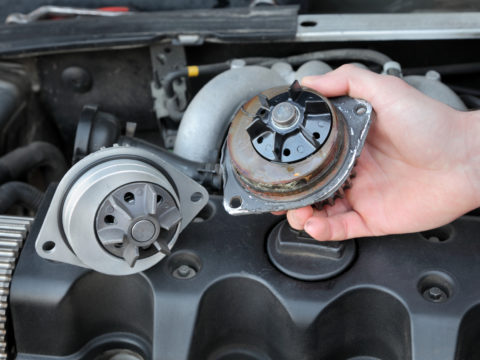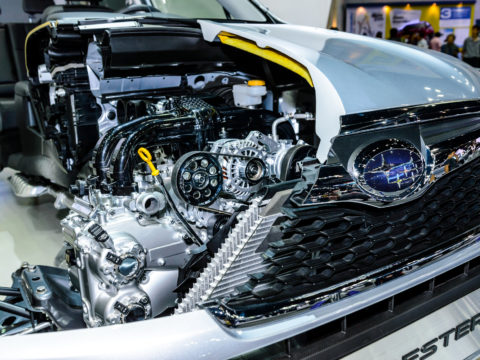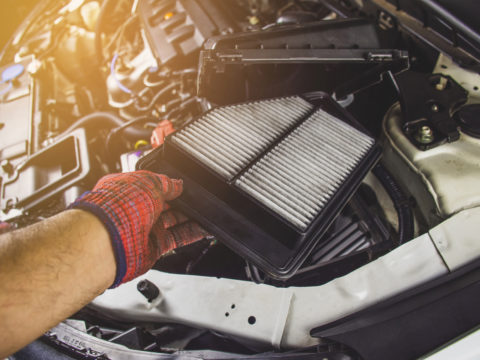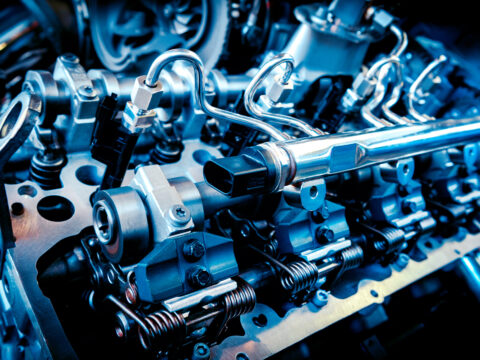Ticking noise in an engine is almost always a bad sign, and it typically comes from one of several causes. While you can drive your car when you hear the engine ticking, it’s best to resolve the cause of the ticking as quickly as possible.
Otherwise, your vehicle can suffer further damage over time and develop worse engine issues.
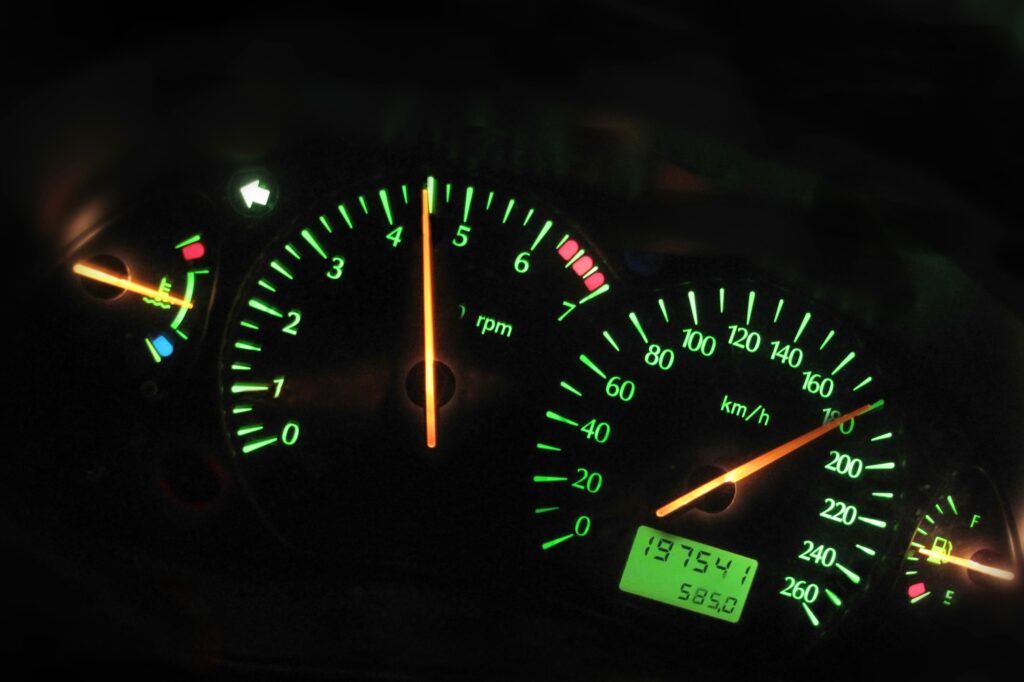
Contents
Engine Ticking Diagnosis
When you notice ticking in your engine, the first thing to do is start searching for the root of the problem. Because several factors can cause the ticking sound to arise, the best thing you can do is work through each potential cause one at a time.
Remember that some issues require more time and knowledge to fix, so don’t feel forced to try a DIY fix for a problem you don’t feel comfortable tackling. It’s often better to seek help from a professional to ensure your car gets the proper fix without any issues.
Is a Ticking Noise in the Engine Bad?
Yes, a ticking noise in the engine is not something you want to hear. Most engines are somewhat loud and make several normal noises that all mean different things.
However, a continuous ticking noise when accelerating is not a normal noise that you should hear.
Despite this, there are cases where a ticking noise in an engine is not a cause for concern. The most common example is a ticking noise that happens due to fuel injectors, but this tends to happen when a vehicle is idle.
What Would Cause a Ticking Noise in the Engine When Accelerating?
Several causes can create a ticking noise when an engine accelerates, so here are five common culprits to check for first.
The Vehicle Is Low on Engine Oil
Engine oil is the lifeblood of any engine. Without having the proper amount of oil for lubrication, an engine is vulnerable to experiencing damage because all the moving parts can grind against each other.
Because engines are responsible for so much of a vehicle’s performance, it’s crucial to ensure the engine oil level never drops too low. Otherwise, your engine may start making a ticking noise when accelerating.
Valves Are Not Properly Adjusted
The valves that make up the valve train in an engine are responsible for taking fuel in via the intake valve and releasing any out the exhaust valve. Having bad valves can cause issues like engine backfiring, misfiring, unstable idling, and several others.
A ticking noise is also a possible issue that can arise when valves don’t have the proper adjustments. Your car may also experience overheating and pre-ignition problems due to bad valves, so keep an eye out for those.
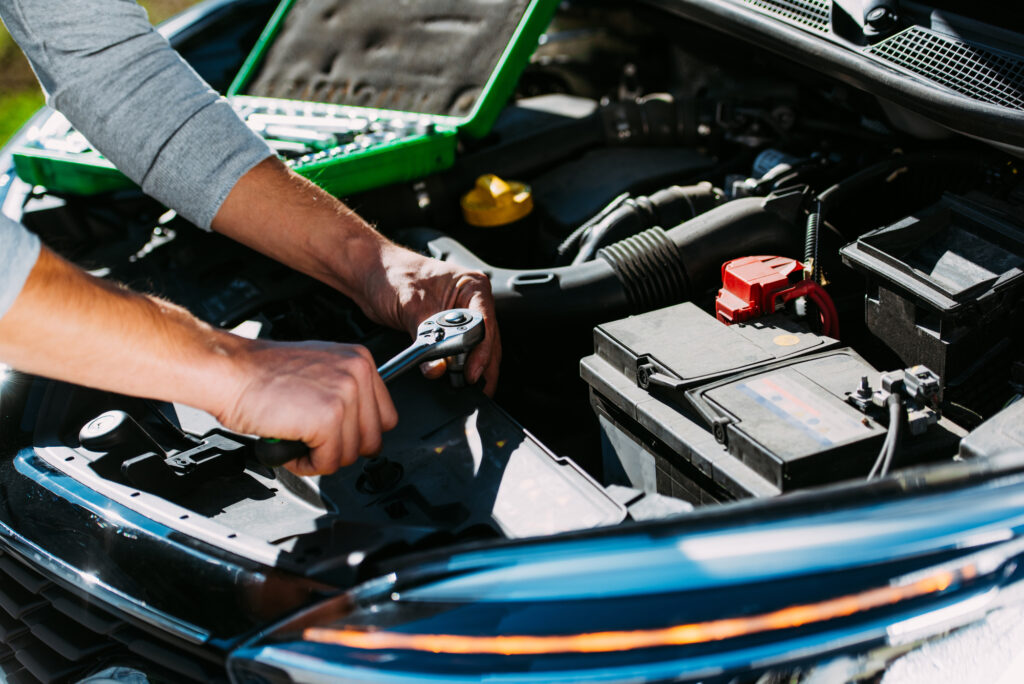
There Are Bad Rods
Rod knocking comes from an engine when the bearings that connect become old or worn out to the point where the rod can’t move properly. Unfortunately, rod knocking is similar to many other engine knocking sounds that come from several other issues, so it’s more difficult to pin down this particular cause.
The best thing to do is check the bearings directly, but you may want a professional to handle the task as it’s rather technical.
Exhaust Leaks
Unlike some of the other causes on this list, exhaust leaks are unique because they are one of the most common problems a vehicle can have. Most vehicles suffer from at least one exhaust leak during their life, and it doesn’t always lead to engine ticking.
Engine ticking often happens due to an exhaust leak when the leak occurs in the exhaust manifold.
Age and a Lack of Maintenance
Finally, an engine can start making a ticking noise once it becomes old and worn down. Because every engine goes bad eventually, a vehicle is more prone to experiencing a ticking noise when accelerating if it receives poor maintenance.
You don’t have to become an expert at maintaining every part of your car, but it’s a good idea to at least learn how to keep your engine in good shape since most causes of a ticking noise begin there.
How To Fix Ticking Noise in Engine
Here are fixes you can try for each of the causes that lead to engine ticking noise.
Get Fresh Engine Oil
Keeping your vehicle’s engine lubricated with fresh engine oil is a simple fix that you can do yourself. On average, you should change your vehicle’s engine oil every 5,000 to 7,000 miles to ensure your engine continues functioning without suffering from overheating and overall weaker performance.
Adjust the Engine Valves
You’ll have to have a ring spanner on hand to adjust an engine valve. You can change the gap of the valves to get the best performance out of your engine, but be careful you don’t give too much clearance because that can cause long-term damage.
Replace the Bearings for The Rods
You can replace rod bearings on your own, but it can take a long time, even when you know what to do. Part of the lengthy process involves working through other car parts like the pistons and crankshaft to access the bearings. That being the case, consider taking your car to a mechanic to have a professional handle the process.
Exhaust
Fixing an exhaust leak is another process you may want to leave to the professionals, as it’s among the most challenging tasks you can try. A leak is especially tough to fix when there’s a break or hole in the exhaust system, as it can require a complete replacement.
Make Sure Your Vehicle Gets Proper Maintenance
Even when you check for the most common causes of the ticking noise in an engine when accelerating, you may not find a clear culprit. Sometimes several things can lead to a ticking noise in an engine, which is why proper maintenance is essential for every vehicle.
If you want to avoid having this issue creep up at all, consider taking your vehicle to a professional mechanic regularly or learning how to perform basic maintenance yourself.
Is It Ok To Drive a Car With a Ticking Noise When Accelerating?
Driving a car that makes a ticking noise when accelerating is alright when you’re in a pinch, but it isn’t something you want to do long-term unless you have no other choice. The sooner you resolve the issue, the sooner you won’t have to worry about your vehicle’s performance failing you in one or numerous areas.

